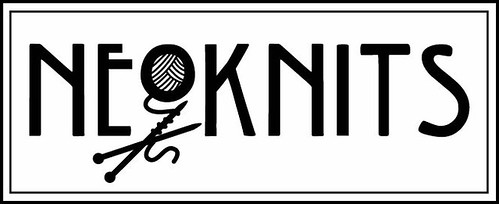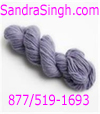Friday, April 25, 2008
Fashion Friday
In the spirit of my full-time endeavor, I'd like to maybe spend a little time every week (or every other week) talking about fashion: trends, colors, personal sewing projects, and issues. For my first Fashion Friday, since it's been in the news the past few weeks, I'd like to talk about where your clothes may come from and the possible conditions of those places.
Like Cheap Clothes? Have you ever given a thought to why they are so cheap?
In the news the past few weeks, there were reports of many factory workers in Bangladesh striking for fair living wages. With the price of food going up around the world, many workers in poor countries are having problems feeding their families.
But that is just one problem plaguing these workers.
The general working conditions for many of the factory workers in developing countries aren't always the best. Long hours, poor pay, unhealthy, cramped, and unclean working spaces.
With retailers constantly putting pressure on clothing companies to give them goods at cheap prices, the problem often becomes tolerated and overlooked. Consumers who love cheap fashion or "throwaway fashion" keep the cycle going.
Luckily, I work for a company who owns their own factory; conditions are controlled and the factory has the highest quality certification they can obtain (which only a handful of retailers require). But it's not always so easy for companies, retailers, and consumers to know where their goods are being produced and what the conditions are like at those factories. For example, our company makes goods for some of the retailers that sell clothing on the cheaper end of the scale. Once the goods are on the floor, there really is no way for the consumer to tell the difference between our sweaters made in a good factory versus another company that uses a factory with poor standards. So it's not always a black and white issue when it comes to actually knowing the truth about your clothing.
Wanna see for yourself?
BBC has launched a new online fashion magazine aimed at promoting eco-conscious style called Thread. The BBC has also produced a series called Blood, Sweat and T-shirts which gives 6 people the chance to see how their clothes are made by giving them first hand experience in Indian factories. I'm not sure if the program will air in the states, but you can watch a short video clip of each participant's experience and thoughts here.
What can you do?
- As I mentioned above, just because the clothing is cheap, doesn't mean it was made in a bad factory. A good way to start is to write your favorite stores or clothing brands and ask what they are doing to make sure their clothing is being made by a decent factory and get your friends to do the same. Pressure from consumers is the first step to change.
- With what seems like a new consciousness of this issue, a few clothing lines have started to advertise their fair work practices and some even combine it with green technology. They are still mostly carried in specialty stores, but a quick google search is just a click away. The most important key to this whole movement though, is not to mistake these goods for a "luxury" item as some of the more expensive stores are advertising. Consumers shouldn't have to pay hundreds of dollars to make sure the workers who made their clothing are getting fair treatment.
- Always wanted to learn how to sew? Sewing your own clothing is a great way to express your individual style and you know exactly where it came from! Don't have time to sew? Second hand and vintage stores are also a great option.
A few links to get you started:
Clean Clothes Campaign
Sustainable Technology Education Project
"Fast Clothes versus Green Clothes" [via International Herald Tribune]
Like Cheap Clothes? Have you ever given a thought to why they are so cheap?
In the news the past few weeks, there were reports of many factory workers in Bangladesh striking for fair living wages. With the price of food going up around the world, many workers in poor countries are having problems feeding their families.
But that is just one problem plaguing these workers.
The general working conditions for many of the factory workers in developing countries aren't always the best. Long hours, poor pay, unhealthy, cramped, and unclean working spaces.
With retailers constantly putting pressure on clothing companies to give them goods at cheap prices, the problem often becomes tolerated and overlooked. Consumers who love cheap fashion or "throwaway fashion" keep the cycle going.
Luckily, I work for a company who owns their own factory; conditions are controlled and the factory has the highest quality certification they can obtain (which only a handful of retailers require). But it's not always so easy for companies, retailers, and consumers to know where their goods are being produced and what the conditions are like at those factories. For example, our company makes goods for some of the retailers that sell clothing on the cheaper end of the scale. Once the goods are on the floor, there really is no way for the consumer to tell the difference between our sweaters made in a good factory versus another company that uses a factory with poor standards. So it's not always a black and white issue when it comes to actually knowing the truth about your clothing.
Wanna see for yourself?
BBC has launched a new online fashion magazine aimed at promoting eco-conscious style called Thread. The BBC has also produced a series called Blood, Sweat and T-shirts which gives 6 people the chance to see how their clothes are made by giving them first hand experience in Indian factories. I'm not sure if the program will air in the states, but you can watch a short video clip of each participant's experience and thoughts here.
What can you do?
- As I mentioned above, just because the clothing is cheap, doesn't mean it was made in a bad factory. A good way to start is to write your favorite stores or clothing brands and ask what they are doing to make sure their clothing is being made by a decent factory and get your friends to do the same. Pressure from consumers is the first step to change.
- With what seems like a new consciousness of this issue, a few clothing lines have started to advertise their fair work practices and some even combine it with green technology. They are still mostly carried in specialty stores, but a quick google search is just a click away. The most important key to this whole movement though, is not to mistake these goods for a "luxury" item as some of the more expensive stores are advertising. Consumers shouldn't have to pay hundreds of dollars to make sure the workers who made their clothing are getting fair treatment.
- Always wanted to learn how to sew? Sewing your own clothing is a great way to express your individual style and you know exactly where it came from! Don't have time to sew? Second hand and vintage stores are also a great option.
A few links to get you started:
Clean Clothes Campaign
Sustainable Technology Education Project
"Fast Clothes versus Green Clothes" [via International Herald Tribune]
Subscribe to:
Post Comments (Atom)




































2 comments:
very educational. thanks for bringing my attention to something I don't usually think about.
I actually think about this issue often and have never been sure how to reconcile it in my head. Writing the companies is good advice - Thanks!
Post a Comment